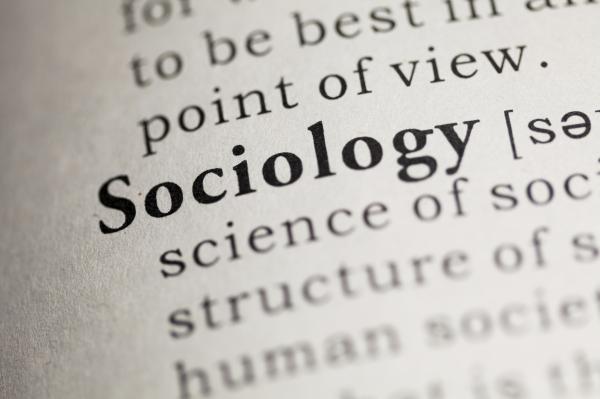What are the Main Branches of Sociology?


Sociology is the study of human behavior, including their patterns, relationships and reactions. This study also focuses on social changes in the human society through history since it is the fundamental study of ancient, medieval and modern civilization. Sociology has many branches because of the vast subjects it studies.
In this article from oneHOWTO, we are going to explain the main branches of sociology according to one of its founding fathers, Emilie Durkheim.
Main branches of sociology
As we've previously mentioned, sociology is the study of human behavior in a society. This study dates back to ancient Greece, if not before. In fact, the origin of the survey can be traced back to 1086. We also have medieval Arab writings from philosophers, such as Ibn Khaldun. Perhaps the reason many people consider him to be one of the founding fathers of sociology. Other considered founding fathers are Auguste Comte, Karl Marx, Max Weber and Emilie Durkheim, among others. Nevertheless, we can undoubtedly say that the observation and reflexion of the human being in their society has always been a popular subject.
Émile Durkheim was a French sociologist often referred to as the father of sociology. He intended to make sociology an academic discipline because he believed it would benefit our society in a positive and practical way. Much of Durkheim's work was focused on how societies could maintain coherence and integrity when tradition and religion ties are no longer a priority. It is not a coincidence that sociology developed after the wake of "The Origin of the Species", Charles Darwin's seminal work which called into question how many of us viewed the world.
Durkheim sought to answer questions society would reflect upon, but could not answer using solely philosophy or even psychology. These questions were influenced by observations he would make about society's behavior around him, such as the declination of religion's influence, the industrial revolution and more. While sociology can be very complicated, it began as a simple intention of trying to better understand the world.
According to Durkheim, sociology was divided into three main branches:
Social morphology
This branch studies geographical aspects of society, such as how the density of population can affect society.
Social physiology
Social physiology studies the influence of religion, law, economy and other aspects on society.
General sociology
General sociology studies the process and interaction of human beings with the goal to improve the day to day activities of our society.
Nowadays there are many other branches of sociology due to the evolution of societies and the relations with the environment. However, much of what Durkheim had discussed in his works are still relevant today. For example, his theory of a collective consciousness. As previously said, sociology is a very broad science with new branches emerging.
Historical sociology
Historical sociology is one of the main branches of sociology that focuses on how societies develop through history. It studies social structures and how they are shaped by complex social processes.
On the other hand, contemporary historical sociology focuses on how the state has developed since the Middle Ages, analysing relations between states, classes and economic and political systems.

Sociology of knowledge
Sociology of knowledge studies the relationship between human thought and the social context within which it arises. It also studies the effects that current prevailing ideas have on societies. This branch deals with broad fundamental questions about the power of social influences on the lives of the individuals living in that society.
Criminology
Another important branch of sociology is Criminology. This science studies different aspects of criminal behavior, such as its nature, extent, management, causes, control, consequences and prevention.
Take a look at how to get into criminology if you're interested in this field.
Political sociology
This branch of sociology is also widely useful for today's societies as it studies the interrelationship between society and politics. Other topics within this branch are the origin of different political views and the relation between social structures and political institutions. Some fundamental questions this branch asks itself is "Why do so few American citizens choose to vote?", "How are emotions relevant to global poverty?" or "What difference will it make if a women get elected?". In other words, this science analyses political phenomena ranging from the state and civil society to the family. Some of its popular subjects are citizenships, social movements and the sources of social power.

Human ecology
Ecology is a branch of biology that studies the relation between organisms and their environment. However, it can also be applied to sociology if studied with humans. Human ecology studies the relations of humans with their natural, social and built environment. In other words, it studies the natural living environment of humans.

Other branches of sociology
Sociology is a very varied social science that studies many aspects of society. Besides the previously mentioned, these are some of the other important topics of study:
- Rural sociology: studies societies in rural areas.
- Urban sociology: studies societies in cities and other urban areas.
- Sociology of demography: studies the distribution of human populations.
- Economic sociology: studies economic phenomena.
- Sociology of culture: studies the meaning of culture inside a specific society.
Why is it important to study sociology?
Now that you know about the different branches of sociology, you may be asking yourself why it's important to learn about this field. Sociology allows us to understand an individual's behavior and how they interact with their society according to different factors. This study can be applied in many fields, such as anthropology, advertising, politics, geography, economy, philosophy and plenty more.
Sociology in relation to other sciences
Sociology is mainly related to other social sciences. Let's take a look at the most popular sciences it is related to:
- Political science: they are very closely related as one could not live without the other. Knowing about sociology in politics is crucial when understanding how a certain government's society works and what their necessities are.
- History: it is clear that each society has grown in their own way due to their unique past events. To analyse today's society we must look back on its history and try to understand how it has developed and why. What were the key factors to its evolution? This is why sociology and history go hand in hand.
- Economics: our society's behavior and the economy are closely related. To study our economical activity we must understand the social behavior that is causing it. Different societies produce different consumptions, distributions and exchanges.
- Psychology: although psychology and sociology study human's behavior, psychology focuses more on their psychological process triggered by social circumstances. Sociology tries to look at society as a whole. Nevertheless, these two studies are closely related.
- Anthropology: this study focuses on human biological and physiological characteristics and their evolution. Cultural anthropology will depend even more on sociological characteristics.
If you want to read similar articles to What are the Main Branches of Sociology?, we recommend you visit our Learning category.








